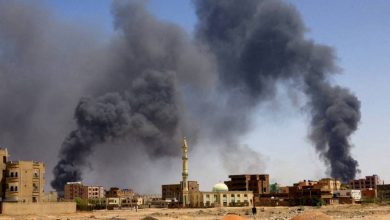Sudan is Collapsing – Here’s How to Stop it (3-3)

The wider Red Sea is an arena of geo-strategic contest where the embers are already smouldering for a wider war that drags in all the world’s main powers. Russia’s Wagner Group is an active military and commercial partner with the RSF – it is heavily invested in Sudan’s gold industry.
The breadth of these complications has no precedent, but the contours of the looming crisis have been evident for some years. Sudan has wrestled for decades with the twin problem of an apparently bottomless economic crisis and governing an ethnically and religiously diverse nation.
The civilian-led cabinet headed by Abdalla Hamdok, formed after the 2019 civic revolution, could neither stabilize the economy nor loosen the military kleptocrats’ stranglehold over the most profitable sectors. Left to fend for themselves by international donors that failed to appreciate the urgency of a massive bailout, the democrats’ failure was preordained.
Al-Burhan and Hemedti jointly launched a coup in 2021. But the two generals couldn’t solve Sudan’s problems. They were just more ruthless in staying in power – by the same token sharpening the dispute between themselves.
Since civil war broke out last year, a succession of efforts to bring the warring parties to the negotiating table has failed. The United States–Saudi talks in Jeddah, an Egyptian initiative, and repeated efforts by northeast African leaders, have stumbled because of internal Sudanese veto or outside interference.
Conspicuously lacking is a mechanism for ensuring that the Middle Eastern powers – especially the UAE – come to the table with constructive proposals. The US has not raised its political engagement to a high-enough level for it to be taken seriously in Riyadh and Abu Dhabi.
It should not be difficult to reach a consensus across Africa and the Middle East that state collapse is in no one’s interest. A common goal of preventing the worst outcome should override differing preferences for who should lead the country.
Mechanisms for building such a consensus existed a decade ago. They included the Sudan Consultative Forum, convened by the United Nations and African Union and involving all interested parties, which was left to wither. The AU Peace and Security Council, which has a record of forging such a consensus agenda, is a shadow of its former self. The United Nations has reduced itself to humanitarian provider.
For the Sudanese, the stakes are existential. The state has collapsed and the path to rebuilding it is long and fraught. Atrocities in western Darfur may amount to genocide. Millions are homeless. Half the country is hungry with many facing famine.
If Sudan remains an international orphan, the calamity will only deepen.
Sudan is Collapsing – Here’s How to Stop it (3-3)
The wider Red Sea is an arena of geo-strategic contest where the embers are already smouldering for a wider war that drags in all the world’s main powers. Russia’s Wagner Group is an active military and commercial partner with the RSF – it is heavily invested in Sudan’s gold industry.
The breadth of these complications has no precedent, but the contours of the looming crisis have been evident for some years. Sudan has wrestled for decades with the twin problem of an apparently bottomless economic crisis and governing an ethnically and religiously diverse nation.
The civilian-led cabinet headed by Abdalla Hamdok, formed after the 2019 civic revolution, could neither stabilize the economy nor loosen the military kleptocrats’ stranglehold over the most profitable sectors. Left to fend for themselves by international donors that failed to appreciate the urgency of a massive bailout, the democrats’ failure was preordained.
Al-Burhan and Hemedti jointly launched a coup in 2021. But the two generals couldn’t solve Sudan’s problems. They were just more ruthless in staying in power – by the same token sharpening the dispute between themselves.
Since civil war broke out last year, a succession of efforts to bring the warring parties to the negotiating table has failed. The United States–Saudi talks in Jeddah, an Egyptian initiative, and repeated efforts by northeast African leaders, have stumbled because of internal Sudanese veto or outside interference.
Conspicuously lacking is a mechanism for ensuring that the Middle Eastern powers – especially the UAE – come to the table with constructive proposals. The US has not raised its political engagement to a high-enough level for it to be taken seriously in Riyadh and Abu Dhabi.
It should not be difficult to reach a consensus across Africa and the Middle East that state collapse is in no one’s interest. A common goal of preventing the worst outcome should override differing preferences for who should lead the country.
Mechanisms for building such a consensus existed a decade ago. They included the Sudan Consultative Forum, convened by the United Nations and African Union and involving all interested parties, which was left to wither. The AU Peace and Security Council, which has a record of forging such a consensus agenda, is a shadow of its former self. The United Nations has reduced itself to humanitarian provider.
For the Sudanese, the stakes are existential. The state has collapsed and the path to rebuilding it is long and fraught. Atrocities in western Darfur may amount to genocide. Millions are homeless. Half the country is hungry with many facing famine.
If Sudan remains an international orphan, the calamity will only deepen



